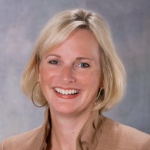 The industry event anyone in secured finance attends now celebrates its 77th year. SFNet is set to make the Arizona convention a memorable one. Click below to register.
The industry event anyone in secured finance attends now celebrates its 77th year. SFNet is set to make the Arizona convention a memorable one. Click below to register.

Dorothy Killeen
Managing Director, Wells Fargo Capital Finance
Biography:
Dorothy M. Killeen currently serves as managing director and head of syndicate and sales for Wells Fargo Capital Finance’s Loan Syndications team. In this role, she leads a team of professionals and has primary responsibility for the execution and distribution of syndicated asset-based loans. Dorothy has been with Wells Fargo and predecessor firms since 1999. Prior to joining Wells Fargo Capital Finance in 2009, Dorothy spent ten years in Leveraged Finance with Wachovia Securities, where she served in origination, underwriting, syndicate and sales roles. She currently serves as the Executive Sponsor for Wells Fargo Capital Finance’s Diversity & Inclusion Council. Dorothy has served on the conference planning committee for the Asset Based Capital Conference for several years and on the Education Committee for the Secured Finance Network, formerly Commercial Finance Association,. She holds a B.A. cum laude in communications from Tulane University and an M.B.A. from the A.B. Freeman School of Business at Tulane University with a concentration in finance. Dorothy resides in Charlotte, NC where she serves as a board member for the Children’s Scholarship Fund of Charlotte.
What advice would you offer to women just starting out in the industry?
Build a network within your organization. Peers and senior members of your team are a good start, but your network needs to include professionals across different roles and levels of your business. Networks keep you “in the know” and can help you accomplish professional goals, including movement within your organization. One of the best ways I’ve found to build out my network is to get involved with special projects or initiatives that are beyond my day to day job. Early in my career, I led a project evaluating Wachovia’s loan return model for the head of our Leveraged Finance business. I also participated heavily in campus recruiting for several years. More recently, I have taken a leadership role in Wells Fargo Capital Finance’s diversity and inclusion efforts. All of these activities helped me develop strong connectivity with Wells Fargo business leaders, increased my visibility in my division and complimented my professional role in Loan Syndications.
What do you know now that you wish you knew at the beginning of your career?
Expect change in the industry and in your business. Economic cycles and changes in the regulatory landscape will have a macro impact on your business, but there will also be more localized, less predictable bumps in the road when you work for a large financial institution. While the basic tenets of lending remain stable, business models will continually evolve to address changing market conditions and you need to be creative and flexible in your view on how to compete for deals and talent.
What kind of role has mentoring and/or sponsorship played in your career?
My career has been guided by several sponsors who have played meaningful roles at different points during my 18 years in banking. One of my early sponsors helped me navigate flexible work options when I returned from each of my two maternity leaves and over the years while my kids were still young. In each of these relationships, proving myself as a high performer was a precursor to developing the personal and professional connections that evolved into sponsorship.
What do you think the industry could do to attract and retain the best and the brightest today?
Some of the smartest and most ambitious people I’ve worked with over the past several years have been part of Wells Fargo’s financial analyst program and our credit training program for associates. However, recruiting a talented and diverse work force at the entry level has proven to be easier than retaining that talent and moving those folks up through our business. At the mid-level, the industry loses talented individuals who see limited opportunity for advancement into senior roles or growth in compensation over the medium and long term. Women in our industry often hit turbulence on reentry after leaves of absence; some perceive or experience limited flexibility, especially among highly compensated roles.
Rick Levin, who served as president of Yale University for 20 years, recently reflected in a New York Times article that his current role as a tech company CEO would make him better equipped to take more risks and think a little more ambitiously about things if he were to return to his former role. Mr. Levin was quoted as saying, “I had to get used to the notion that trying stuff and failing was going to be O.K. We do a lot of testing of new ideas and sometimes you have to course correct. It’s just the way it goes.” The commercial finance industry could take a lesson from this insight as it relates to recruiting and talent management. We need to take more risks on talent from outside of our organizations and industry, re-evaluate how and where we do our work, and learn to live with a little failure when it comes to human capital R&D.
77th Annual Convention
 The industry event anyone in secured finance attends now celebrates its 77th year. SFNet is set to make the Arizona convention a memorable one. Click below to register.
The industry event anyone in secured finance attends now celebrates its 77th year. SFNet is set to make the Arizona convention a memorable one. Click below to register.
